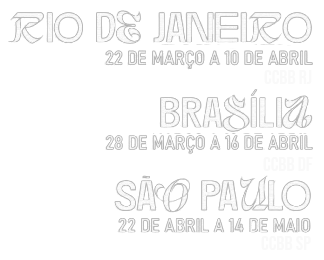ROUND TABLE
BRASÍLIA
ROUNDTABLE 1 - Islamic feminism and other feminist contexts
The table proposes to reflect on the idea of origin and waves in feminist movements across the world. In this sense, it is necessary to work on categories such as women, race, identity, gender, and patriarchy based on the contributions of Black, Latino, Muslim and Indigenous women. Also, other ideas, with greater or lesser intensity, such as “universal patriarchy”, will be discussed, as addressed by Rita Segato, and, furthermore, the idea that “gender is a Western invention.” The debate aims to contribute to a critical approach at the different feminisms and/or women’s movements so they can be understood in their specificities; insofar as they can be considered part of a common movement, that of women’s liberation.
Lecturers: Elzahra Osman, Cesar Baldi, Renata Melo (UnB)
Length: 2 h
Date: 04/08 (Saturday)
Time: 4:15 PM
Venue: CCBB/BSB
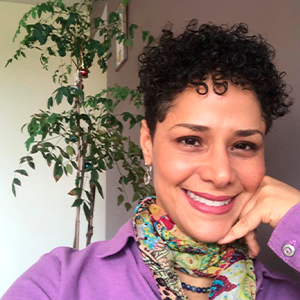
Elzahra Osman holds a degree in Political Science and in Philosophy, both from the University of Brasília (UnB), a Master’s degree in Bioethics (UnB) and a PhD in Philosophy (UnB) in the area of metaphysics, political philosophy and feminism. She is currently a Researcher-Technologist in Educational Information and Assessment at the National Institute of Educational Studies and Research Anísio Teixeira/INEP, on leave for post-graduate studies. She is a researcher in the areas of metaphysics and epistemology with an interface in studies on coloniality, and works in the research groups “Anarchai: Metaphysics and contemporary politics” and “Epistemologies of the South: Social and Political Thought in/from/for Latin America, the Caribbean, Africa and Asia.”
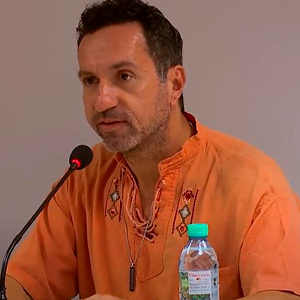
Cesar Augusto Baldi is a professor of Legal Anthropology at EBN, Brasília, and a public server at the Federal Regional Court of the 4th Region since October 1989. Researcher at the Center for Peace Studies and Human Rights-NEP at the University of Brasília, he has experience in the area of Law, working mainly on the following topics: human rights, interculturalism, Islam, Islamic feminism, indigenous peoples, traditional communities, critical theories of human rights, post and decolonial theories, racism, quilombolas, territorialities.
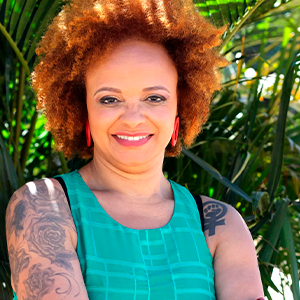
Renata Melo B. do Nascimento (UnB) holds a PhD in History from the University of Brasília. Director of Anpuh-DF. Works as a teacher, researcher and lecturer on the themes of gender, race, class, and other social markers from a historical perspective through film and literature. She has worked in the field of public policies with a focus on culture, women, health, and promotion of racial equality in the Federal Government, in the Federal District Government, and in the Secretariat of Culture of the Municipality of São Paulo. She is a member of the “Research Group: History and Audiovisual: circularities and forms of communication”; “Study Group of Black Women at UnB; Researcher of CEAM/Neab – Center for Afro-Brazilian Studies” at UnB and AME – Women’s Action for Equity. Author of the book: Mulheres Negras em Rio, 40 Graus (1955): Representações de Nelson Pereira dos Santos.
ROUNDTABLE 2 - The role of the cinema of Palestinian women directors as a counterpoint to the hegemonic narrative in Brazil: strengthening the Brazil-Palestine relations
Lecturer: Maynara Nafe, Muna Muhammad Odeh, Sônia Hamid (IFB)
Lenght: 2 h/ha
Date: 04/15 (Friday)
Time: 4:15pm
Venue: CCBB/BSB
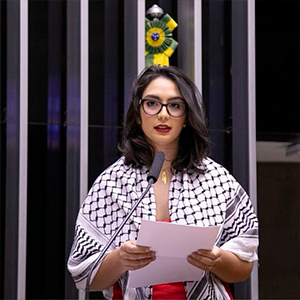
Maynara Nafe is a Brazilian-Palestinian, youth secretary of the Palestinian Arab Federation of Brazil and a undergraduate student in Law and Political Science.
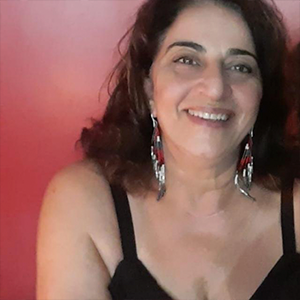
Muna Muhammad Odeh was born in Palestine, in the city of Jerusalem, in 1961, and lives in Brazil since 1992. She is a biologist, professor of Collective Health at the University of Brasilia, where she conducts academic and extension activities on health, anti-coloniality and South-South relations. She is a member of the Sérgio Vieira de Melo Chair (Unb) on migration and refugee issues.
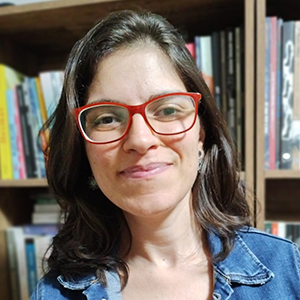
Sônia Hamid (IFB) is a professor at the Federal Institute of Brasília, with a master’s and doctorate in Anthropology. She has conducted research on migration and refuge of Palestinians in Brazil, focusing on gender, humanitarianism and population management.
RIO DE JANEIRO
ROUNDTABLE 1 - Archival footage, memory and politics
Lecturers: Patrícia Machado (PUC-Rio), Thais Blank (FGV CPDOC)
Length: 2 h
Date: 03/25 (Saturday)
Time: 2 PM
Venue: CCBB/RJ
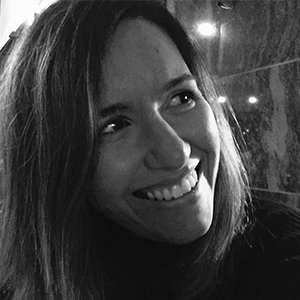
Patrícia Machado is an Assistant Professor in the Media Studies undergraduate program at PUC-Rio and at the Graduate Program in Communication at PUC-Rio. Leader of the CNPQ research group “A pesquisa das imagens de arquivo e o desenvolvimento de um método” (The research of archival images and the development of a method). Member of the Administration Council of OS-Sociedade Amigos da Cinemateca. Co-organizer of the book Imagens em Disputa (ed.7 Letras, 2018).
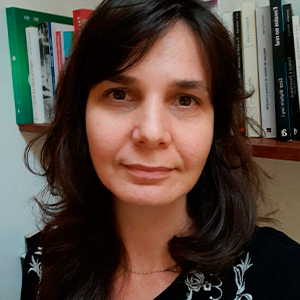
Thais Blank is an Adjunct Professor at the FGV CPDOC School of Social Sciences and the FGV CPDOC Postgraduate Program in History, Politics, and Cultural Assets. She is the coordinator of Documentation at FGV CPDOC (2021) and co-coordinator of the Audiovisual and Documentary Nucleus at FGV CPDOC (2015). Leader of the CNPq research group Visual Culture Studies Laboratory (LECV FGV CPDOC). Her research interests lie in archival footage, amateur cinema, cinema and education, and cinema and history. Author of Cinema Doméstico Brasileiro 1920-1965 (Appris, 2020) and organizer of the book A Propósito Outros Filmes: Encontros com o Arquivo de Imagens em Movimento (Editora FGV, 2022), among other works.
ROUNDTABLE 2: Overflows and anchorages: Middle Eastern women in motion
Looking at the Middle East as a dynamic and diverse field does not prevent one from noticing similarities and exchanges that happen, which resemble and bring us closer together. It is perhaps in the transnational movement that such anchoring and similarities are most evident. In addition to Arab women, what do the Persian, Turkish, Kurdish, Azerbaijani, Amazigh, Druze, Berber, Romani, Black women who inhabit the region all bring? A perspective of middle-eastern women that anchor experiences and emotions, that translates into the verb the body that affects, transits, and transposes itself — would it be possible? This table aims to expand the field of observation and perceive the networks formed, the shared universes, the meanings created by Middle Eastern women, thinking about them from their different origins, looks and contexts. How to understand the Middle East in its multiplicity from the experiences, perspectives, and contributions of its women? How to understand the dynamics and questions that permeate the imaginary about this region starting from the movement, the sensitivity and the artistic production presented by them?
Lecturers: Ana Raietparvar (NEOM/UFF), Daniele Regina Abilas (NEOM/UFF), Mirian Alves (NEOM/UFF)
Length: 2 h
Date: 04/01/2023
Time: 2 PM
Venue: CCBB/RJ
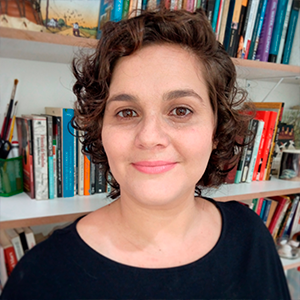
Ana Maria Raietparvar has a doctorate and a master’s degree in Anthropology from UFF. Researcher at the Center for Middle East Studies — NEOM/UFF and at the Center for International Migration Studies — CEMI/Unicamp. Participates in research projects on migration, refuge, nationalism, religious conversion, Iranian diaspora, Middle East and Iran. Co-founder of Revista Diáspora, production of scientific dissemination in the Middle East, North Africa and diaspora communities. She remains a professor at the Department of Sociology at Colégio Pedro II.
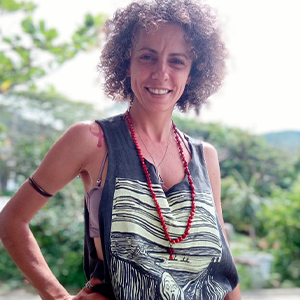
Daniele Regina Abilas is an anthropologist and multiple artist. Conducts research and cultural productions in Palestine and Brazil. As an anthropologist, she works as a researcher associated with NEOM – Center for Middle East Studies, at UFF, developing ethnographic research in Palestine there and Palestine here, that is, with Palestinian refugees and immigrants in Brazil. More recently, she enters the caiçara universe of trawl fishermen and their spaces of circularity. Transitory, impermanent spaces of precariousness and transgression instigate the gaze and the production in languages different from her own, intending to observe from intersections, crossings, overflows, contaminations, fugitiveness.
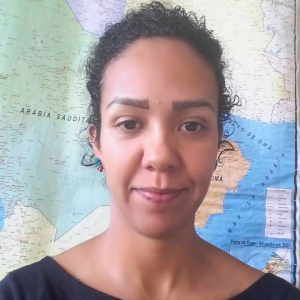
Mirian Alves de Souza holds a PhD in Anthropology (PPGA/UFF) , is a professor at the Department of Anthropology at the UFF and a researcher at the Center for Middle East Studies (NEOM/UFF) and Refugee Outreach & Research Network (ROR-n).
SÃO PAULO
ROUNDTABLE 1 - Curatorial table: where the films come from, ways of financing and circulation
Lecturers: Alia Ayman, Analu Bambirra, Carol Almeida
Length: 2 h/class
Date: 05/05/2023
Time: 3PM
Venue: CCBB/BSP
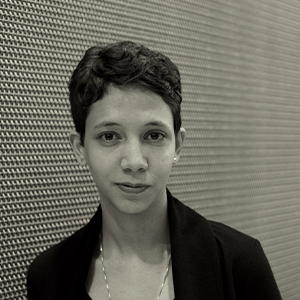
Alia Ayman makes and curates films and videos and lives between Cairo and New York City. She is the co-founder of Zawya, an art-house cinema in Cairo and is a doctoral candidate in sociocultural anthropology at New York University. She is a programming consultant for Berlinale Forum, The International Documentary Film Festival in Amsterdam (IDFA), and BlackStar Film Festival. She has previously curated programs for Images Festival in Toronto, Flaherty NYC, and Arsenal Institute for Film and Video in Berlin, among others.
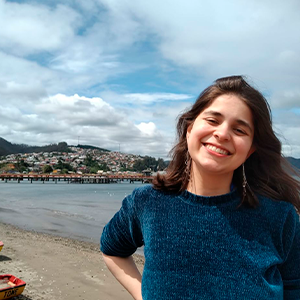
Analu Bambirra holds a B.A. in Cinema and Audiovisual from Centro Universitário UNA in Belo Horizonte/MG. A partner at Partisane Filmes, she works in the executive production, curatorship and distribution areas. She collaborated with the production company Anavilhana from 2014 to 2022, and since then she collaborates with Ocean Films as a project manager. She is curator, director and producer of the Arab Women’s Film Festival.
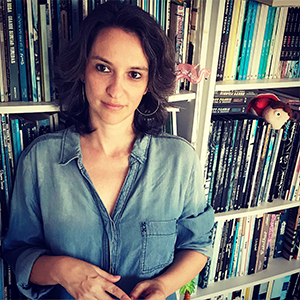
Carol Almeida holds a PhD from the Postgraduate Program in Communication at UFPE, with research focused on contemporary Brazilian cinema. She is part of the curatorial team of the 3rd edition of the Arab Women’s Film Festival and has been part of the curatorial team of the Festival Olhar de Cinema/Curitiba since 2017, as well as the Mostra que Desejo, promoted by Mirante Cineclub. She conducts workshops on film criticism, curatorship, contemporary Brazilian cinema, and women’s representation in cinema. She is currently working as a substitute teacher of the following subjects: Audiovisual Production Workshop and Visual Languages and Cultures, at the Universidade Federal de Alagoas.
ROUNDTABLE 2: Talking about Palestine: disputes and curatorial challenges
The table aims to discuss the challenges related to the ways of presenting (talking about) Palestine, considering the disputes that cross that territory. We start from the premise that the action of providing visibility, teaching, curating and selecting themes about Palestine involves dealing with the numerous attempts to erase its existence as a nation—taking into account the fact that it is part of a region that lives a complex political situation, crossed by the effects of a so-called “protracted conflict”. Seeing what Palestine is in the contemporary context, the idea is to start from this problem to devise and discuss approaches to address it, considering, for example, everyday life, the conflicting relations between individual and collective experience, and the temporal overlapping that impacts the identities involved in the conflict.
Lecturers: Prof. Dra. Arlene Elizabeth Clemesha (DLO/USP), Fernando Resende (PPGCOM/UFF), Mariane Gennari (CEAI/UFS)
Length: 2 h
Date: 05/12/2023 (Friday)
Time: 6 pm
Venue: CCBB/SP
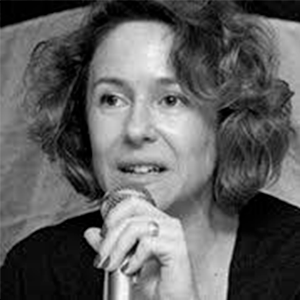
Prof. Dra. Arlene Elizabeth Clemesha is a Professor of Arabic History in the Arabic Course of the Department of Oriental Languages of the University of São Paulo. PhD (2003) and M.A. (1998) from the graduate program in Economic History of the University of São Paulo. Visiting Researcher at the University of Michigan at Ann Arbor (2001). Her books include Marxism and Judaism, History of a Difficult Relationship (São Paulo: Boitempo); Palestine 48-08 (Tehran: DEFC in Farsi and English); Edward Said: trabalho intelectual e crítica social (co-org/SP: Casa Amarela); Brazil and the Middle East: the Power of Civil Society (co-org./IRI-USP), and has published in English, Spanish, French, Italian, Arabic and Farsi. Arlene worked as an Edward Said’s translator to Portuguese, including the book Freud e os Não-Europeus (Boitempo). She founded and directed the film exhibition Images from the East, with the Documentary and Experimental Film Centre (Tehran) and the Arab Culture Institute. She serves as a member of the Advisory Board of the Common Action Forum, based in Madrid.
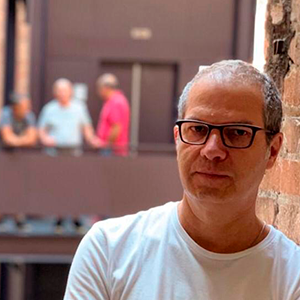
Fernando Resende is a Professor at the Department of Cultural Studies and Media and at the Post-Graduate Program in Communication (MA and PhD) of the Universidade Federal Fluminense. Postdoctoral fellow at the School of Oriental and African Studies (SOAS – University of London – England – 2013), PhD in Communication Sciences (USP), MA in Literary Studies (UFMG). Senior Researcher at CALAS – Center for Advanced Latin American Studies (Universidad de Guadalajara, Mexico). Coordinator of TRAVESSIA – Center for Global South Studies (UFF). He is a researcher PQ/CNPq with emphasis on communication studies, conflict narratives and diasporic movements, working mainly on the following themes: journalism, discourse, narratives, culture, communication, alterity, conflict and Middle East. Research Associate at the Centre for Film and Media Studies and the Centre for Palestinian Studies at SOAS – University of London.
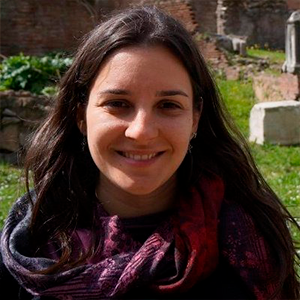
Mariane Gennari is a researcher at the International Center for Arab and Islamic Studies (CEAI) at the Federal University of Sergipe (UFS). She has a Master’s degree in History (USP), with research on Palestinian literature. She is also a teacher by the Municipal Secretary of Education of São Paulo.




